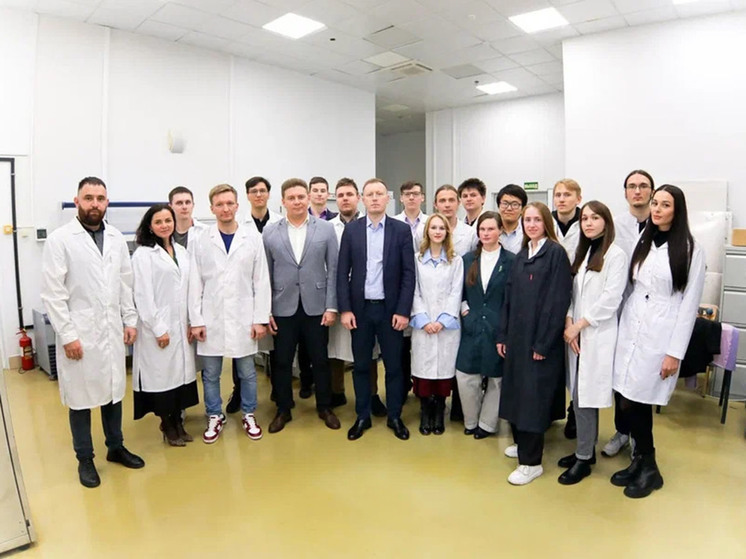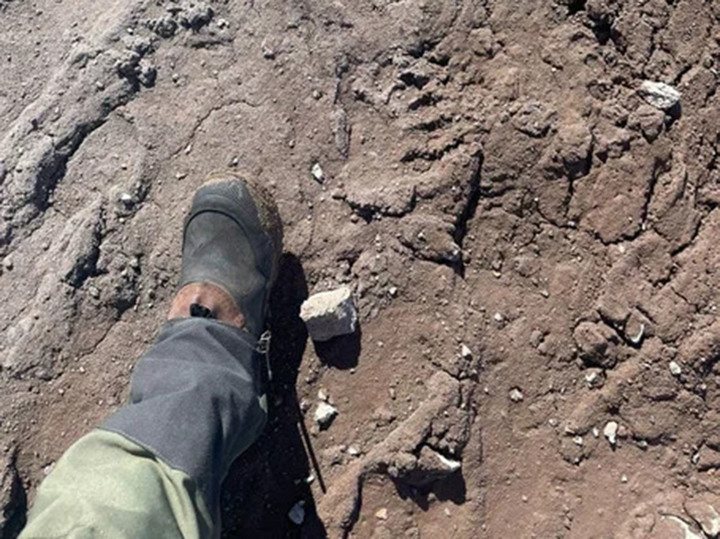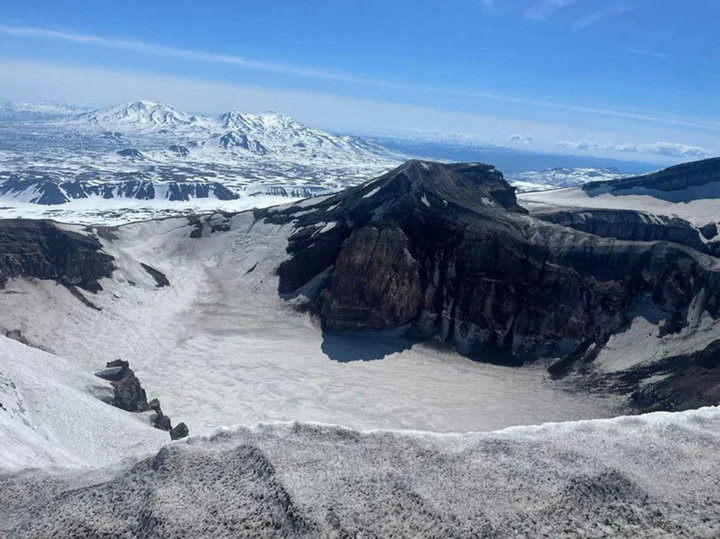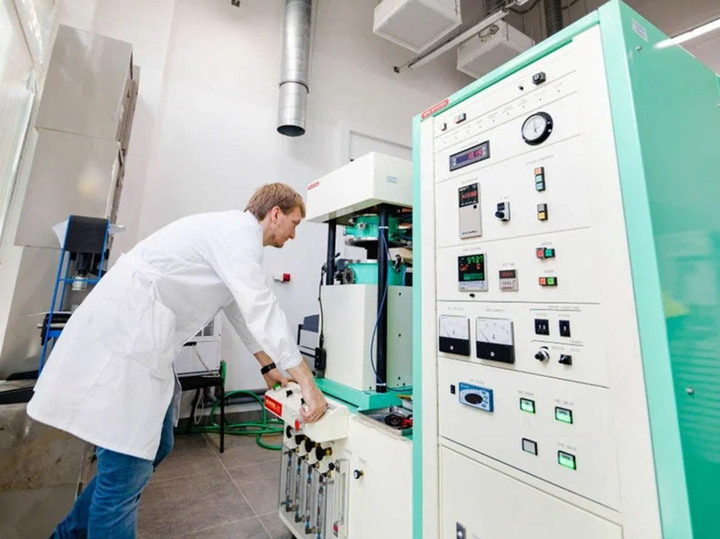Scientists are developing a new technology for obtaining building blocks
Two volcanoes — Gorely and Baranovsky, or rather their rocks, were useful to Far Eastern scientists for modeling lunar regolith. Using them, they developed an original technology for “sintering” “bricks” for the construction of the first residential complexes on the surface of the earth’s satellite. The results of the work were published in the scientific journal Construction and Building Materials.
 Laboratory of Nuclear Technologies ITPM. Photo: FEFU
Laboratory of Nuclear Technologies ITPM. Photo: FEFU
Two volcanoes, Gorely and Baranovsky, or rather their rocks, were useful to Far Eastern scientists for modeling lunar regolith. Using them, they developed an original technology for “sintering” “bricks” for the construction of the first residential complexes on the surface of the earth’s satellite. The results of the work were published in the scientific journal Construction and Building Materials.
The construction of the base is necessary for the successful future colonization of the Moon, which scientists consider a convenient springboard for further exploration of the Solar System. A lunar base is included in both the Russian lunar exploration program and the joint Russian-Chinese program for the construction of the International Lunar Scientific Station (ILSS).
The concept of In-Situ Resource Utilization (ISRU) is considered the most suitable and cost-effective concept for building this base. In other words, scientists from many countries are working on technologies for producing building materials exclusively from lunar regolith, without bringing additional materials from Earth. But since it is currently not possible to extract the required amount, experts are looking for the most suitable materials to model it on Earth.
 Basalt andesites on the slope of Gorely volcano. A notable feature is a bear's footprint (to the right of the boot) at an unusual height for a predator (the height of Gorely is 1,799 meters). Photo: FEFU
Basalt andesites on the slope of Gorely volcano. A notable feature is a bear's footprint (to the right of the boot) at an unusual height for a predator (the height of Gorely is 1,799 meters). Photo: FEFU
As reported to MK by the Russian Ministry of Education and Science, employees of the Laboratory of Nuclear Technologies of the Institute of High Technologies and Advanced Materials of the Far Eastern Federal University (FEFU) together with colleagues from the Far Eastern Geological Institute of the Far Eastern Branch of the Russian Academy of Sciences took part in this work. Andesite-basalts of two Far Eastern volcanoes – Gorely and Baranovsky – were used for the first time as imitators of lunar soil.
MK Reference: Gorely Volcano is an active volcano located 75 kilometers southwest of Petropavlovsk-Kamchatsky. Baranovsky Volcano is an extinct volcano located in Primorsky Krai, 100 kilometers north of Vladivostok.
 Crater at the top of Gorely volcano. Photo: FEFU
Crater at the top of Gorely volcano. Photo: FEFU
Their rocks, which turned out to be very close in composition to real regolith, were ground into submicron powders and sintered using spark plasma sintering (SPS) at temperatures of 800, 900 and 1000 degrees Celsius.
As the lead author of the study, candidate of chemical sciences Oleg Shichalin explained to MK, if the technology is adopted, the process of manufacturing building materials from it on the Moon will look like this. After collecting lunar regolith from the surface of the Moon, it will be placed in a special form or container. Then this form will be placed between two electrodes, the necessary mechanical pressure will be created and a powerful electrical impulse will be supplied. An electrical discharge in a matter of seconds will create plasma between the particles of regolith, heating it to very high temperatures. This will achieve the result of sintering the material. After it cools, lunar builders will receive a durable ceramic block. Oleg Shichalin notes that compared to traditional methods of layer-by-layer sintering (used, in particular, in 3D printing), the new method will be more convenient in the conditions of a space vacuum and will consume much less energy. In addition, using the technology of plasma sintering under pressure, it turns out to be much denser and has unique strength characteristics. Another important advantage of the method is its scalability – the technology is easier to adapt for the production of large products on the Moon than using a 3D printer.
 Oleg Shichalin conducts an experiment on an electric pulse plasma sintering unit. Photo: FEFU
Oleg Shichalin conducts an experiment on an electric pulse plasma sintering unit. Photo: FEFU
The best ceramic samples of «moon bricks» obtained on Earth were obtained by scientists at a sintering temperature of 1000 degrees Celsius with a heating rate of 300 degrees per minute.
– We have found that the heating rate during sintering has a decisive effect on the density of the resulting ceramics, – Oleg Shichalin added in conclusion.
The next step for the researchers will be to develop protection for people from ionizing cosmic radiation on the Moon, including neutrons and hard X-rays. To do this, the scientists plan to create materials with neutron absorbers and test them on a neutron source – a nuclear reactor.





















































Свежие комментарии